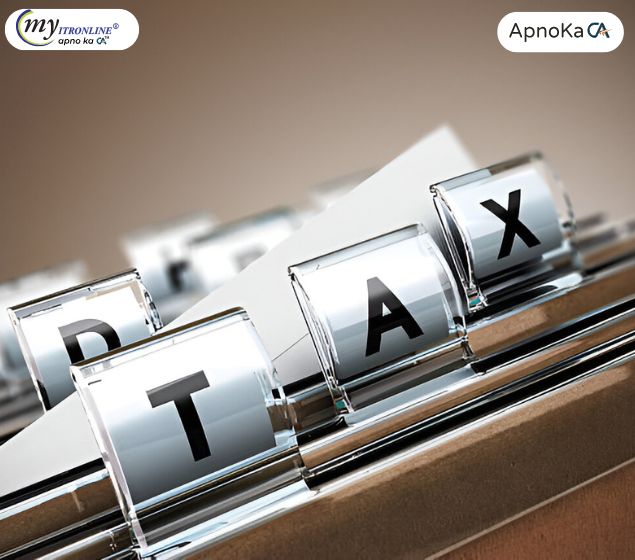# 2025
12 posts in `2025` tag
.jpg)
The Cost of Delaying TDS: Understanding Section 201(1A) Interest and Penalties
This blog post provides a comprehensive overview of Section 201(1A) of the Income Tax Act, 1961, focusing on the interest levied for delayed TDS deduction or payment. It explains the two distinct scenarios for interest calculation (1% for failure to deduct, 1.5% for failure to pay after deduction), clarifies the "month or part of a month" rule, and illustrates calculations with clear examples. Furthermore, it details the severe implications for defaulting deductors, including "assessee in default" status, disallowance of expenditure under Section 40(a)(ia), various penalties (271C, 271H), and potential prosecution. The post concludes with practical best practices to help deductors ensure timely compliance and avoid these costly repercussions.
.jpg)
ITR-2 & ITR-3 Excel Utilities Are LIVE! Your Essential Guide to Filing for AY 2025-26
This blog post announces the release of ITR-2 and ITR-3 Excel utilities for AY 2025-26. It explains which taxpayers must use these forms and highlights important updates from the Finance Act, 2024. These updates include changes to capital gains segregation, share buyback rules, and higher asset reporting thresholds. The post describes the benefits of using Excel utilities and offers a clear, step-by-step guide for filing. It stresses key points like the e-verification deadline and the need for accuracy and good record-keeping to ensure smooth compliance.
.jpg)
Taxpayer Alert! Decoding Income Tax Department's New Rules for FY 2025-26
The Income Tax Department is making significant updates and tightening compliance for FY 2025-26 (AY 2026-27). This blog post serves as an important "taxpayer alert." It explains key changes, such as the mandatory Aadhaar-based verification for updates to the e-filing portal and PAN applications. There is also a stronger emphasis on computer-assisted scrutiny (CASS) for certain types of returns, including survey/search cases, ITR-7 filers, recurring additions, and intelligence alerts. Additionally, it provides information on expected delays in ITR refunds due to outstanding demands and technical upgrades. The focus on HRA claims will tighten, especially those that involve family members. It highlights the need for proactive compliance, careful record-keeping, and timely responses to avoid penalties and ensure a smooth tax experience.
.jpg)
TDS Rules for Your Rent and Property: What You Need to Know
This blog post offers a clear comparison of four important TDS sections related to property and rental income in India: 194I, 194-IA, 194-IB, and 194-IC. It explains each section's nature of payment, payer, payee, threshold limits, TDS rates (including recent changes for 194-IB and 194I for FY 2025-26), time of deduction, required forms, and TAN requirements. The post also discusses the connections between these sections, compliance issues, and best practices for individuals, businesses, and developers to manage the TDS landscape effectively and avoid penalties.

Tax Audit Made Easy: Your Simple Guide to Section 44AB (FY 2024-25)
This blog simplifies the concept of Tax Audit under Section 44AB of the Income-tax Act, 1961 for regular taxpayers. It explains why tax audits are essential, clearly outlines the turnover/receipt limits for businesses (₹1 Crore/₹10 Crore) and professionals (₹75 Lakhs) for FY 2024-25, and details special cases involving presumptive taxation. The article highlights the crucial role of a Chartered Accountant, the forms used (3CA, 3CB, 3CD), and the general deadline of September 30, 2025. Finally, it elaborates on the significant penalties for non-compliance and offers practical advice for taxpayers to ensure a smooth audit process.
.jpg)
Understanding Interest Under Sections 234A, 234B, and 234C of the Income Tax Act
Sections 234A, 234B, and 234C of the Income Tax Act deal with interest charged for late filing of returns, underpayment, or deferment of advance tax. This blog explains each section in detail with examples and calculations, helping taxpayers stay compliant and avoid extra charge
.jpg)
Income Tax Notice under Section 143(2): Meaning, Scrutiny Process, Deadlines & Response Guide
Have you received a notice under Section 143(2)? Don’t panic. This blog explains what it means, why it’s issued, the deadlines to track, and how to respond effectively ensuring you're well-prepared for any scrutiny with confidence.
.jpg)
CII for FY 2025-26 Notified: What India's New Cost Inflation Index Means for Your Capital Gains
The Central Board of Direct Taxes (CBDT) has announced the Cost Inflation Index (CII) for FY 2025-26 as 376. This blog post explains what CII is, how the new index will be applied from AY 2026-27, who it impacts, and provides an example of how it reduces taxable long-term capital gains, particularly for real estate acquired before July 23, 2024. It highlights the importance of understanding this update for accurate tax filing.
.jpg)
CBDT's Latest: Interest Waivers for Past TDS/TCS Delays Are Now Confirmed!
This blog post summarizes CBDT Circular No. 8/2025, which clarifies that interest waivers for delayed TDS/TCS payments due to technical issues can apply to past charges, provided applications meet the one-year deadline

Form 10B Guide for Trusts (AY 2025-26)
This comprehensive guide explains Form 10B, an essential audit report for charitable/religious trusts, educational institutions, and hospitals under the Income Tax Act (2025). It details who needs to file it (especially those with over ₹5 crore income, foreign contributions, or income applied outside India), its key contents, the step-by-step online filing process, and the crucial September 30, 2025 due date for AY 2025-26. The synopsis also highlights the severe consequences of non-compliance, emphasizing the report's vital role in maintaining tax-exempt status and ensuring financial transparency.

Income Tax in India: Are You Prepared for July 2025?
This blog post provides a comprehensive overview of the significant income tax changes coming into effect in India from July 1, 2025. It details the more attractive new tax regime with revised slabs and increased deductions, the extended ITR filing deadline, the mandate for Aadhaar in PAN applications, and the real-time PAN-bank linking system. Furthermore, it touches upon the updated ITR forms and the broader proposals of the Income Tax Bill 2025, offering taxpayers crucial insights for compliance and effective tax planning.

Your ITR Filing Checklist for AY 2025-26: Essential Documents You Can't Miss!
This blog post provides a crucial checklist of essential documents required for filing Income Tax Returns for Assessment Year 2025-26 (Financial Year 2024-25). It details the importance and usage of key documents such as Form 16, Form 16A/B/C, Form 26AS, AIS/TIS, Capital Gains statements, and proofs for tax-saving investments/expenses (for the Old Tax Regime). The post emphasizes the benefit of early preparation for a smooth and error-free filing experience and includes a pro-tip for cross-verification. It concludes by offering MyITRonline's expert assistance for accurate and hassle-free tax filingYour ITR Filing Checklist for AY 2025-26: Essential Documents You Can't Miss!
